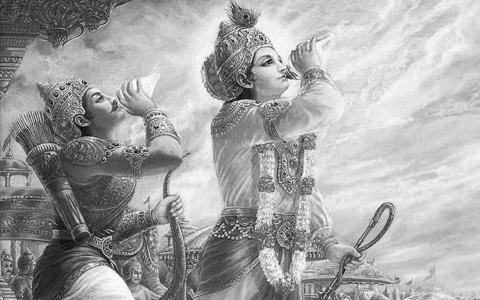
With this part, we conclude the translation series of the preface to Vacanabhārata. The current article describes the literary approach of AR Krishna Sastri in composing the prose rendition of the Mahābhārata in Kannada. Drawing inspiration from his approach, the current translators, Arjun Bharadwaj and Hari Ravikumar are working on bringing out a prose rendition of the Mahābhārata in English.
The article also contains some autobiographical...
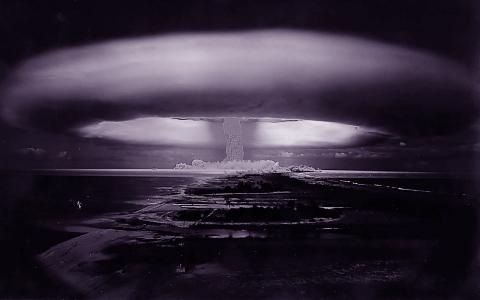
The primary characteristics of the modern world are material wealth and individual freedom [c. 1950]. Today, an individual desires to be independent as much as possible. However, in practice, he seems to think that he should not have anything binding him, he will not pay heed to anyone’s words, and he would like to do whatever he desires without anyone questioning him—this has been the result. There is a loosening of the various relationships,...
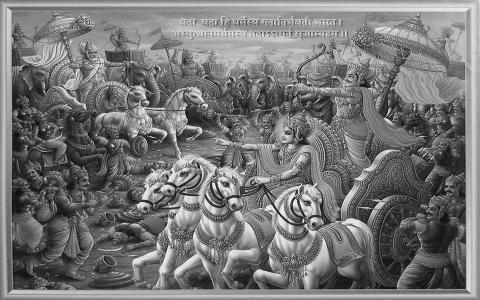
The word ‘karma’ means ‘activity.’ In a narrower sense, it can also mean the Vedic rituals of yajña and yāga, building of socially useful amenities such as lake and ponds, and observance of pūjā and rituals that are prescribed in the Purāṇas, Smṛtis, and Āgamas. In common parlance, it also refers to a bad action that leads to sin. Yajñas and yāgas are mainly performed to please nature deities such as Indra and Agni. The performance of these will...
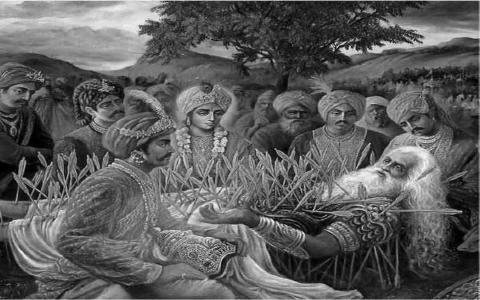
There are times when we face difficulties as a result of our own ignorance, indiscretion, dullness of intellect, stupidity, etc., but at other times, we face difficulties because of the ignorance and indiscretion of other people. Sometimes we face difficulties due to reasons beyond us. Thinking this way, we may assume that humans are responsible for wars; however, what can be said of calamities such as earthquakes, cyclone, famine and flood –...
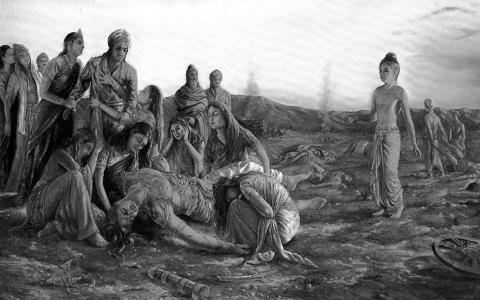
The Vagaries of Comforts and Discomforts
Why are there difficulties, troubles, sorrows, and atrocities on earth? Nobody desires for these. Everyone wants to be comfortable and happy. Merely by aspiring to be free of troubles doesn’t lead to such a state; just because one wants to be happy, it is not easy to attain. Some have only happiness in their lives while some others have only difficulties.
Let’s assume that the two—joy and sorrow—exist in...

Mahābhārata - Ahiṃsā
The trait of sattva does not mean non-activity or lack of valour. The same can be said of ahiṃsā too. We have seen earlier that ahiṃsā is one of the first pre-requisites for the practise of yoga. It is not sufficient merely staying away from violence but one must also show compassion. That is the very first ātma-guṇa laid out by the author of the dharma-sūtras (see Gautama-dharma-sūtra). But the Mahābhārata is a story of war...

Saṃnyāsa, Yajña-dāna-tapas
By the time of the Mahābhārata, it seems that several people had given up worldly life and had taken up saṃnyāsa; they practiced abstinence and lived on roots and fruits in āśramas (hermitage) that they constructed in the wild. It was common for the kings to take up the lifestyle of a muni (sage, ascetic) during old age. Saṃnyāsa is the fourth āśrama (stage of life).
Even when slightly perturbed, Yudhiṣṭhira...
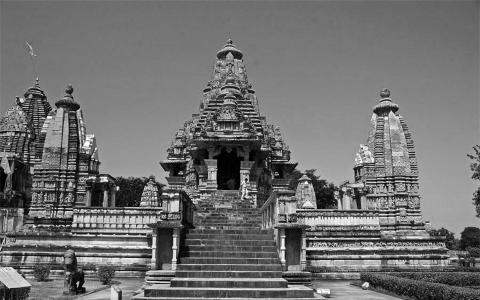
Bhīṣma, Yudhiṣṭhira, and Kṛṣṇa have been portrayed as the noble characters in the Mahābhārata. Among these, Yudhiṣṭhira looks upon Kṛṣṇa as an elder brother and a guide to their family; and as for Bhīṣma, he looks at Kṛṣṇa as a devata. Therefore, in the poet’s vision, in the whole of the Mahābhārata, Kṛṣṇa is the noblest of them all, and the most worthy of worship. It is not surprising that fantastic tales have been weaved around his character....
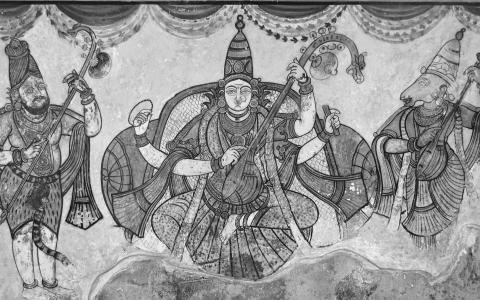
According to the Gītā, dedicating every activity to the all-pervading brahman or working with divine inspiration is called ‘arcana’ (roughly translated as ‘worship’ or ‘praise’). The means of this worship is sva-karma, i.e., activity attuned to the temperament (sva-dharma) of the individual. Only this kind of worship leads an individual to perfection.
यतः प्रवृत्तिर्भूतानां
येन सर्वमिदं ततम्।
स्वकर्मणा तमभ्यर्च्य
सिद्धिं विन्दति मानवः ॥...

We have seen earlier that prakṛti undergoes metamorphosis due to the loss of equilibrium of the three guṇas (sattva, rajas, and tamas) and this instability is instigated by the puruṣa – this cause sentient creation. Prakṛti can only be under the influence of either the puruṣa or īśvara. This īśvara-saṅkalpa (the ordinance of the Supreme Being) is destiny. This principle is given several other names such as Daivadiṣṭa, Bhāgadheya, Bhavitavya,...
